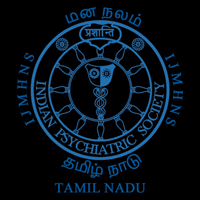Coping strategies among medical professionals during COVID-19 outbreak
Abstract
BACKGROUND: COVID -19 pandemic is a very stressful situation for doctors, who face the risk of infection in daily life. Coping is the process by which a person deals with stressful situations or demands. Identifying the coping strategies of our medical professionals will help us to understand their coping styles and to deliver effective interventions to enhance their mental well-being.
METHODS: An online survey form with socio-demographic profile and BRIEF COPE tool for assessing different coping strategies was sent to interns, residents, and teaching faculty. The coping strategies were divided into emotion-based, problem-based, and dysfunctional coping, and spearman's correlation was done to determine any correlation between sociodemographic variables and the coping strategies.
RESULTS: A total of 84 valid and complete responses were included in the study. There is a variable distribution of mean scores for problem-focused, emotion-focused, and dysfunctional strategies. Age and marital status had a positive correlation with problem-focused and emotion-focused strategies meaning that older adults and married people used these strategies predominantly. Higher designation used problem-focused coping predominantly. Dysfunctional coping strategies had no correlation with any of the sociodemographic variables.
CONCLUSION: Sociodemographic factors affecting the coping mechanisms in medical professionals differ from those of the general population seen in previous studies. Within the group of medical professionals, those with higher age, higher designation and married had predominantly adaptive strategies. Interventions targetting maladaptive components of emotion-focused strategies and dysfunctional strategies should be aimed at a younger age group, unmarried people, interns, and residents among the medical professionals to better cope with this COVID scenario.
KEYWORDS: Medical professionals, coping strategies, emotion-focused coping, problem-focused coping

